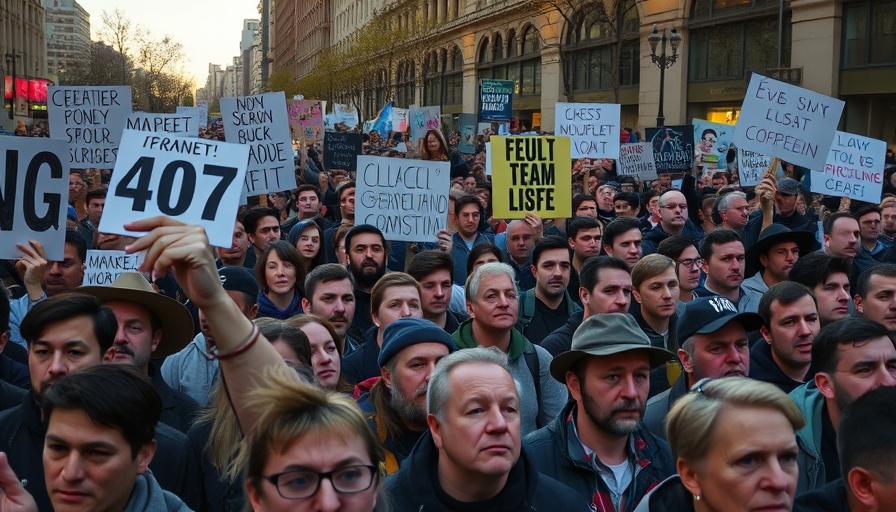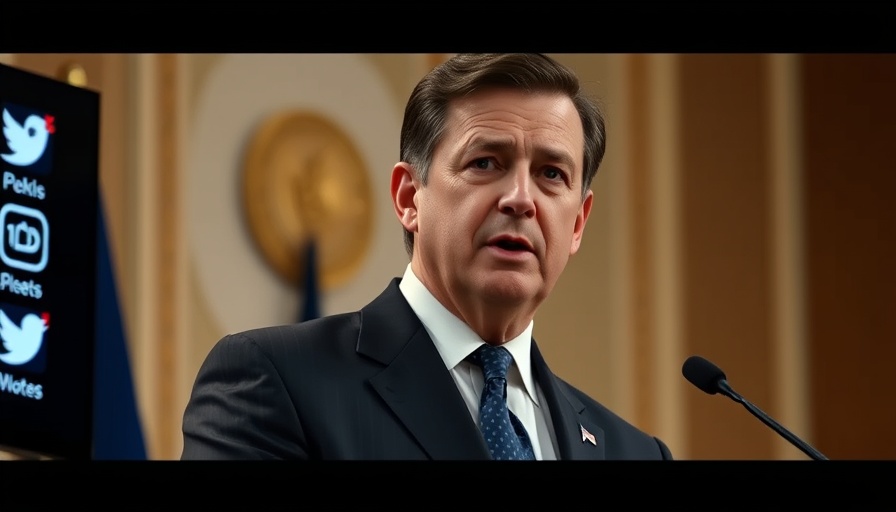
The Growing Discontent in Israel: Protesters Demand Change
On an impactful Saturday, the streets of Tel Aviv were engulfed in Levee of chants and placards as protesters voiced their vehement demands: "Release the hostages and end the war." This significant outpouring of sentiment is indicative of rising tensions pertaining to the Israeli government's handling of the ongoing conflict with Hamas, now extended into its 22nd month.
In 'Israel: anti-government protesters take to the streets in Tel Aviv,' the discussion dives into the rising public sentiment and the demands for government accountability, exploring key insights that sparked deeper analysis on our end.
Understanding the Context: An Escalating Conflict
The backdrop against which these protests are occurring is critical to understanding the current political strife in Israel. Recently, the Israeli government announced plans to escalate its military engagement by fully taking over Gaza City, a controversial decision that was met with notable condemnation from the international community. FRIDAY'S high-stakes decision, arrived at during a late-night security cabinet meeting, represents not just a tactical move in military strategy but a pivotal moment that raises questions about humanitarian implications, regional stability, and the potential for escalating violence.
A Look at Humanitarian Concerns
Criticism of Israel’s actions has largely centered around the humanitarian crisis evolving in Gaza. Reports of indiscriminate bombings and blocking of essential humanitarian aid have drawn stark condemnation not only from humanitarian organizations but from critical observers around the globe. This situation has left civilians in dire circumstances, exacerbating existing perceptions of the Israeli government's policies as excessively aggressive and neglectful of civilian welfare.
Significance of Public Dissent
The protests in Tel Aviv serve as a reflective lens on broader societal sentiments in Israel. Current public unrest isn’t solely a response to the recent decisions of the government; rather, it symbolizes a profound national debate about the country’s current trajectory and its impact on civil freedoms, public safety, and ethical governance. As one protestor articulated, many citizens share discontent with the government's policies and demand accountability for what they view as disastrous leadership implications following the catastrophic events surrounding October 23.
International Perspective on Israeli Policies
Given the global implications of Israeli policies, especially in the context of Hamas, international reactions merit attention. Countries and international organizations have been vocal, with many arguing that the Israeli offensive war against Hamas not only undermines peace prospects but could further radicalize the region. Here, the palpable tension between regional sovereignty and international humanitarian standards is highlighted, as the world watches how Israel reconciles its security concerns with ethical responsibilities towards the Palestinian people.
The Road Ahead: Navigating Complexity
As protests unfold, the crux of the issue rests on the government’s ability to navigate this crisis. Political leaders must engage with dissenting voices, understanding that the repercussions of ignoring public sentiment can be severe, potentially catalyzing further unrest. Governance is not merely a top-down procedure; it is an intricate web of citizen engagement, transparency in decision-making, and fostering civil discourse.
Concluding Thoughts: The Importance of Citizen Engagement
In moments of unrest and vocal dissent, the efficacy of democracy is put to the test. As the situation unfolds, it is essential for citizens to remain engaged, informed, and active in the dialogue regarding their governance and policies affecting their lives and their potential impact at the global stage. The implications of the protests in Tel Aviv are profound, encapsulating a vital narrative of a people calling for accountability and a rethink of their government’s priorities. Only through active engagement and the willingness to advocate for change can citizens hope for a peaceful resolution to an enduring crisis.
As developments continue in the region, we encourage readers to stay informed about the situation, not only in Israel but also throughout the global discourse on governance, humanitarian policies, and civil rights. Awareness leads to action, and as professionals in the communal space of governance, it's imperative to advocate for accountability and transparency.
 Add Row
Add Row  Add
Add 




Write A Comment